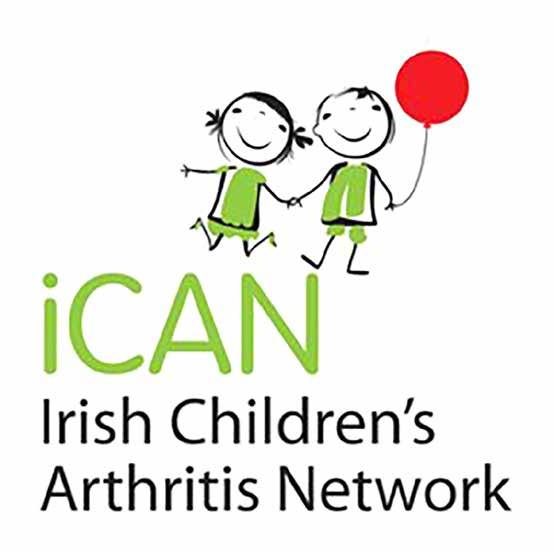82 Clinical R&D YOUNG SPORTS STARS VOICE THEIR SUPPORT FOR OPEN CONVERSATIONS ABOUT DEPRESSION IN IRELAND Former Waterford hurler Maurice Shanahan and Dublin Ladies Senior Footballer Nicole Owens are lending their support to Talking Depression, a new campaign to encourage open and honest conversations. Launched by Janssen Sciences Ireland UC, the campaign comes as new research reveals that almost half of Irish adults (47%) do not feel equipped to have a conversation with a family member or friend who they suspect may be experiencing a mental illness, despite almost two thirds (62%) having more empathy towards mental illnesses, such as depression, compared to before the COVID-19 pandemic. By taking the time to understand more about depression and encouraging conversations about mental illness, more people can have a chance to find the right support for them. To help take that first step, a new resource, The Little Book of Big Conversations has been created to support people living with all forms of depression, their family members and friends. It is full of practical advice to help make those big conversations about depression a little easier. The book is part of a larger Global campaign created by Janssen in partnership with people living with depression and their loved ones and with the support of GAMIAN-Europe (the Global Alliance of Mental Illness Advocacy Networks Europe) and EUFAMI (European Federation of Associations of Families of People with Mental Illness). The public survey of 1,000 people in Ireland, conducted by Empathy Research on behalf of Janssen, found that 78% of adults would be likely to have a conversation with a family member or friend who they suspect may be experiencing mental illness. However, there was concern about upsetting the person they are speaking to (81%), saying the wrong thing (79%), or not understanding the other person’s experience (73%). Ireland has one of the highest rates of mental illness in Europe and it is estimated that approximately 150,000 people per year are living with severe depression (also known as Major Depressive Disorder or MDD) in Ireland. Recent patient research commissioned by Janssen, captured the prevalence and unmet needs of people living with the most severe forms of depression and shows how important it is to reach out for help. This research, involving over 200 adults living with severe depression
in Ireland, shows that over 3 in 4 adults reported the COVID-19 pandemic has had a negative impact on their depression with half having had their access to support, therapy and treatment restricted. 3 in 5 adults living with severe depression say it has a major impact on their quality life as they experience a multitude of challenging symptoms daily including fatigue or loss of energy (74%), poor sleep patterns (66%), low mood and poor concentration (56%) and feelings of worthlessness (52%). Dr. Thekiso B. Thekiso, Senior Lecturer and Consultant Psychiatrist, Trinity College Dublin, Navan Mental Health Services said, “Depression, and in particular severe depression also known as Major Depressive Disorder (MDD), is more than just a bout of the blues. It is where you stop doing the things you normally enjoy doing and you can’t simply “snap out” of it. Unfortunately, depression often goes undiagnosed and untreated in adults, and they may feel reluctant to seek help. The COVID-19 pandemic has without doubt made things much more challenging for people living with serious mental illness and now more than ever people need support. It is really important to reach out to your family, friends and in particular your HCP to get the help that you need.” The Little Book of Big Conversations can be accessed at janssenwithme.ie/en-ie/little-bookbig-conversations UNDERSTANDING MS@WORK 9 out of 10 people (90%) living with multiple sclerosis (MS) in Ireland say that the COVID-19 pandemic has helped, or could help, steer conversations with their employer about how working from home could benefit them in the long-term1. That’s according to new research which was carried out by MS Ireland among its members ahead of the launch of Understanding MS@Work, a dedicated online employment resource for those living with MS and their employers. The research found that 80% of people with MS say the way they work has changed as a result of the pandemic, while almost twothirds (64%) of those surveyed say that working from home has benefitted them over the past 18 months. Although the majority of respondents (85%) say that their employer knows they are living with MS, more than one-fifth (21%) of respondents cited ‘lack of understanding / empathy’ as the issue that most impacts their working life.
FEBRUARY 2022 • HPN | HOSPITALPROFESSIONALNEWS.IE
MS is the most common disabling neurological disease of young adults in Ireland, and affects the motor, sensory and cognitive functioning of the body. Symptoms of MS include impaired mobility and vision, severe fatigue and cognitive difficulties which can have a huge impact on an individual’s work and family life. Understanding MS@Work, which is supported by Roche Products (Ireland) Ltd., aims to encourage and enable people living with MS to have beneficial conversations with their employers about their working environment. Videos of people with MS talking about their careers and their conversations with employers have been created along with advice on working during the pandemic. Sections have also been developed for employers so that they can become more informed and aware of the potential challenges faced by people living with MS and emphasize the benefits of providing a flexible work environment for employees with MS and other chronic conditions. Simone Feresin, Patient Journey Partner, Roche Products (Ireland) Ltd. said, “Working life can be stressful for everyone, particular since the COVID-19 pandemic challenged the way many of us work and led to new ways of working for so many. Understanding MS@Work aims to provide information and real life examples of flexible working environments so that people with MS and their employees can feel empowered to have important conversations which will benefit everyone in the long term.” CLONMEL HEALTHCARE OFFERS IRELAND’S PHARMACIES A BROADER PORTFOLIO Clonmel Healthcare is now offering pharmacists, and their customers, a broader range of consumer healthcare brands such
as Pharmaton vitality/immunity, Telfast, Nasacort, Opticrom, and the Dulcolax laxative range, as well as Buscopan for IBS, and Maalox antacids. These attractive brands are covered by an agreement whereby Clonmel’s parent group STADA, is distributing and marketing Sanofi’s local portfolio of well-established consumer healthcare products across 20 countries. The addition of such well known and strong brands like Pharmaton will enhance Clonmel’s existing portfolio of winter products, including the companies recently launched Medithyme cough syrup and long established Paralief (Paracetamol) and Easofen (Ibuprofen) ranges. With Clonmel Healthcare as a trusted partner, Irish pharmacists can be sure they are offering their customers an appealing and comprehensive offering for a range of symptoms. “The addition of Sanofi’s portfolio to Clonmel Healthcare’s current offering will alter the companies ranked position in the market to No. 2 by volume, and will firmly place the company in the top 5 OTC companies in Ireland” according to Jim Hanlon, General Manager at Clonmel Healthcare. He further added “Adding major brands like Buscopan and Dioralyte for rehydration further strengthens the companies’ position. We look forward to supporting pharmacy purchases with targeted and effective promotional campaigns for these brands. Other brands in Clonmel Healthcare’s new offering included Antihistan Cream (Mepyramine Maleate) and Selsun anti -dandruff shampoo, which join Clonmel’s other products in the anti-fungal head care treatments such as Nizoral Shampoo.
Jim Hanlon, General Manager at Clonmel Healthcare









